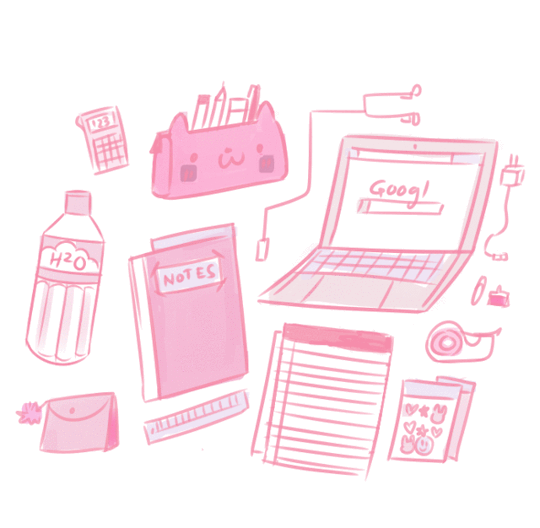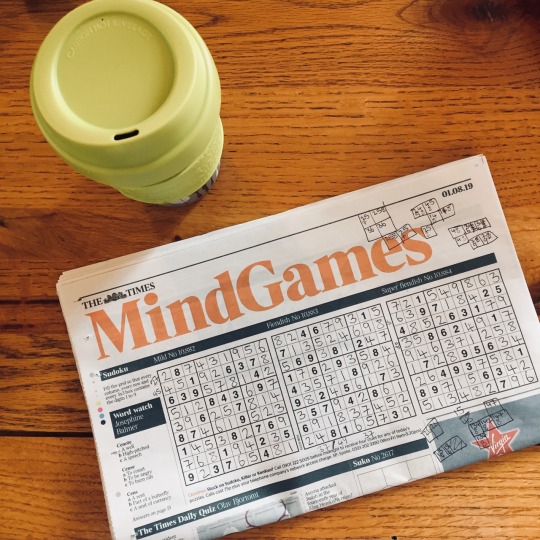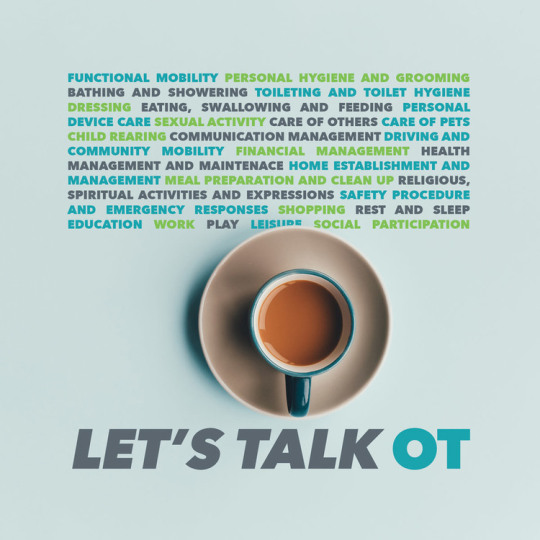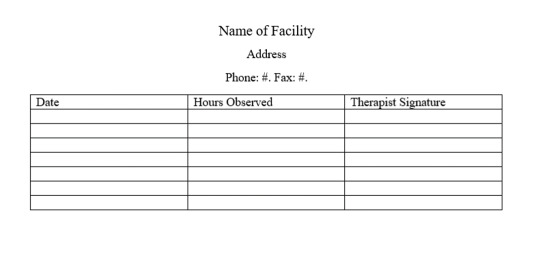Text
updates: One semester down, many to go!
Hi all, I definitely have not been updating this blog and I apologize for that! I finished my first semester of OT school in December and have been in the thick of the second semester that started 5 weeks ago.
I’m going to be making a big post (or a few smaller posts, haven’t decided yet) about some things I’ve been learning in OT school about OT that I find to be super important! Hint - it all has to do with theory, communication, and evidence-based practice!
I actually haven’t learned any specific assessments (aside from ROM [range of motion] and MMT [manual muscle testing]) and interventions yet because I’m still learning all the important foundations of the field.
I go on my first level 1 fieldwork this semester as well and am very nervous but so excited to apply all the things I’ve been learning to real-life clinical scenarios! I’m hoping to learn and practice as much as I possibly can
3 notes
·
View notes
Note
How's your OT program going?
It’s been going great. I’m pretty busy and definitely pushed this blog to the side but I’m trying to keep checking in every so often. I love it though, I’m learning a lot and am so excited to be an OT
0 notes
Quote
Man, through the use of his hands, as they are energized by mind and will, can influence the state of his own health.
Mary Reily, EdD, OTR
#occupational therapy#occupational therapist#therapeutic use of self#occupations#participation#health#wellbeing#power of occupations#ot#ot student#occupational therapy student
2 notes
·
View notes
Text
High-Low function labels suck
I was put in occupational therapy when I was little after I was first diagnosed with autism. It was super helpful and som many things in may life got easier. Then they stopped it because I was too high functioning.
I could talk
I could feed myself
I could bathe myself
I could write
I had ok-ish balance
My hand-eye coordination was acceptable
So that support system went away. Then all of a sudden I got worse. More meltdowns, I had trouble coping, my balance got worse, my handwriting got worse, my sensory issues got worse. Like who would thing that when you take away something that’s making someone’s life better that it would get worse?
I recently went back to occupational therapy and I started getting better. They tried to say that I could stop going because I was too high functioning. My mother and I shared a look then looked back and both said no very firmly at the same time. It was almost comical.
So that’s why high-functions is a bad thing. It can take care that people need away from them.
Now for low functioning. This one is pretty easy.
It is disgusting if you think of someone as low functioning. That means that you are thinking of them as a lesser person than you and you disgust me. I will never respect you if you ever consider another human being less than yourself for any reason.
#important#functioning labels always bothered me#especially when the desire for classification supercedes the desire to meet someones needs#viewpoints#feedback#discussion#ot#occupational therapy#experiences in occupational therapy
256 notes
·
View notes
Text
“It is more important to know what kind of person has the disease than what kind of disease the person has.”
— Sir William Osler (Address at Johns Hopkins University, February 1905)
526 notes
·
View notes
Video
I love adaptive technology - this is awesome!
Also, just noticed the negative language in the first sentence...I wouldn't use the phrase "suffer from", perhaps instead use "live with" or "experience." Everyone has their own preferences, but in general it's best practice to avoid using words and phrases that are unnecessarily negative.
DO YOU SUFFER FROM RHEUMATOID ARTHRITIS? HEMIPARESIS FROM A CVA? A SPINAL CORD INJURY?
DO THESE THINGS STOP YOU FROM DOING WHAT YOU USED TO LOVE?
THEN TRY THE SEWIST’S FRIEND!!
For one of my classes (Physical Dysfunction) in my Occupational Therapy program this semester, we had to create an adaptive device. We’ve recently been learning about stroke patients with hemiparesis (severe weakness on one side of the body), and I was trying to think of what could help if I no longer had fine motor control over my fingers. How could I still sew and engage in meaningful occupations?
That’s how I came up with the idea for my project. I would still want to sew even without fine motor control, a superior pincer grip or minimal finger dexterity.
So I created these elastic pockets on a compression glove that hold needle nose pliers which are able to do the grasping for you. All you need is the gross motor control of a flexing and extending Palmar grasp.
I did really well, and I’m really proud of it, and maybe it could help people sew and embroider who have difficulty after an injury or after being diagnosed with difficult conditions.
#ot#occupational therapy#occupational therapy school#ot school#ot student#occupational therapy student#adaptation#adaptive technology#adapted tools
1K notes
·
View notes
Text
HIPAA!
More specifically, protecting any potential PHI that may potentially end up potentially saved unencrypted on your computer where someone potentially could potentially see it
So I just had orientation for OT school and we got the usual HIPAA presentation and ways to protect patients’ PHI. However, we always went a step further with IT to explain how to avoid potential HIPAA breaches when there is the possibility that PHI may be accessible on our devices (laptops, phones, tablets, etc)!
I thought it was super important and wanted to share my advice as I navigated trying to ensure all my notetaking, email, and word processing application were all HIPAA compliant. (I use an android phone, PC laptop, and iPad btw)

(gif by pnkemoji)
So, as a professional student learning about how to do your chosen profession, you’ll likely encounter case studies. These are real people that have agreed to allow their PHI to be used for educational purposes to the intended audience only (that being you and your class).
So you’re taking notes on this case study and save it to your laptop. You then lose your laptop (someone steals it). They break into it and discover all these notes you wrote on your case study with all these potential identifiers (except names because you thought that’d be too obvious). Age, sex, height/weight, diagnosis, dates of service, their insurance provider, etc. These could POTENTIALLY be pieced together to identify who that individual is. This would be a HIPAA violation.
SO! What I’ve done is figure out how to encrypt all the apps I use to take notes (usually onenote) as well as any other application easily accessible in my devices that could contain PHI (such as my school email on my phone!!!)
I password protected all the sections of my school notebook in OneNote that I will use to take notes in class, regardless of whether or not I think it could possibly contain PHI. (Note: precaution is really my biggest thing here.) That way, if anyone wants to take a look through my notes, they gotta put in a password first. Office considers this “encryption” however the degree to which everything is really “scrambled” without the password I don’t actually know.
Any Microsoft Word, Excel, or PowerPoint file can be encrypted with a password. Therefore if anyone wants to open it, they have to put in a password. Boom, protected.
For my school email on my phone, I’ve decided to use a free app locking app that requires a pin to open any app I’ve “locked.” It also requires the pin to open the app itself, so please don’t forget it lol. I haven’t figured out if the lock goes away if the app is just uninstalled, but I will follow up with IT to see what they think about it. Otherwise, I’ll just have to remove my school email account from my phone’s email app.
I didn’t want to encrypt my phone because, while I can, it’s quite a commitment because you cannot unencrypt it. Therefore, I don’t know the ramifications if you have issues with the phone and need to take it in to get fixed. Also, if you reset your phone, all encrypted files will be lost. I can’t encrypt my computer either, as I don’t have the Pro or business version of Windows 10, so it doesn’t support BitLocker. However, if you do have those versions, it’s super easy to run BitLocker and encrypt your device.
Additionally, just don’t save any PHI to your personal devices if you can reasonably avoid it. Use your school’s HIPAA compliant resources. For me, it’s Box and Office 365 online. (Google drive is not HIPAA compliant!!! - sucks for online collaboration but worth it to avoid a breach!!!)
Again, a lot of this is super extra precaution-y, but I really believe it’s worth the effort to avoid even potentially risking disclosing someone’s PHI without their consent. If it were my PHI, I’d want someone to be just as cautious.
#hipaa#phi protection#hipaa precautions#professional school#medical school#ot school#pt school#pa school#grad school
0 notes
Text
“Occupation has previously been positively linked to well-being because it fulfills a basic human need to do, provides a sense of purpose, provides a means to organize time and space, and is a medium for the development and expression of identity.”
— (Christiansen, 1999; Yerxa, 1994)
#ot#occupational therapy#occupational therapy school#occupational therapy student#ot student#ots#occupation#wellbeing#quality of life
197 notes
·
View notes
Text

01/08/2019 :: Keeping the brain cells ticking over during summer break 🧠📚
163 notes
·
View notes
Photo
OT definitions are vague because OTs adapt their services to the needs of those they serve

Everything that OT’s really do!
#ot#occupational therapy#occupational therapy school#occupational therapy student#ot student#ots#ot school#what is occupational therapy#what is ot
269 notes
·
View notes
Text
How my mornings look ❤
#coffee#coffee aesthetic#cold brew#boomerang#graduate student#grad school life#grad student#grad school#grad life#graduate school#grad studyblr#studyblr
2 notes
·
View notes
Photo


It’s the season for oat milk iced coffee content ✨
16K notes
·
View notes
Text
Additionally, if you know some or all of the schools you are planning to apply to, check out their website and see if they have a log sheet that they use. Two of the seven schools I applied to had their own log sheets they wanted me to fill out (although when it came time to put everything in OTCAS they didnt actually give me an option to scan and upload the log sheets 🙄).
In general, if you know you want to apply to a specific program, reach out to their Admissions Coordinator with any questions about applying! Not only does it give you the answer you need, but it also gets your name on their radar and shows you are proactive and responsible. Not to mention it also shows that you are interested in their program in particular.
Does this raise your chances of getting accepted? Maybe, maybe not. But it's good practice regardless.
Applying to OT School: Observation Hours
So I got my first message, it was regarding how to log observation hours. I figured if one person has a question, other people who stumble upon my blog may also like to hear the answer. So thank you for the message, and the idea for a blog post! Feel free to reach out with questions about OT school, OTCAS, anything on your mind. I’m happy to answer.
Some facilities may provide you with a log sheet to fill out during your time there to keep for their own records. I’ve observed at places where they did that and made a copy for you to keep for your own records. These sheets included the following information:
facility name
facility address
facility phone number
facility fax number
column for date the observation hours were completed
column for the number of observation hours completed on that date
column for the signature of the OT you observed under
Alternatively, if the facility you observe at does not have a log sheet (or you are unsure and want to be prepared for your first day of observation) you can make your own log sheet:

I would recommend keeping a log for your personal records for two reasons:
OTCAS requires you to input the number of hours you’ve observed/volunteered/worked/interned in the field and will also require you to indicate what setting these observations hours were completed in. Keeping a personal record of your observations hours can make the application process go a lot smoother and faster. There’s also a description box where you have to describe what you did or about the experience (very briefly). So if possible, I also recommend writing a brief summary of the experience shortly after so that you have something to work from for OTCAS, as well as interviews.
Some programs (in the U.S.) actually require you to submit a log like this with therapist signatures either through OTCAS in the additional documents section or through some other means. Let me repeat: some, not all. However, this does not mean you should lie about hours just because a school may not ask for a log sheet because you still have to talk the talk in an interview (if that school does interviews).
Side note: apologies for any typos, I’m typing quickly and not rereading because I have family to attend to, but I was excited and wanted to get this out. I’ll probably be back on here at some point this weekend to re-read and correct any mistakes.
#ot#ots#ot school#ot student#Occupational Therapy#occupational therapy school#occupational therapy student#graduate school#applications#observation hours#OTCAS
6 notes
·
View notes


